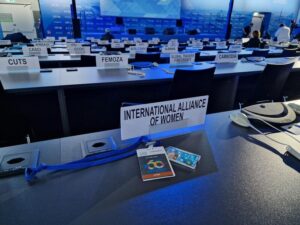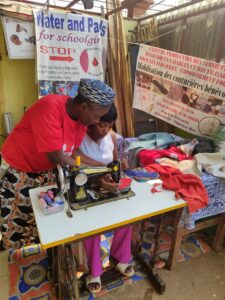 The International Women’s Day is a bad time to celebrate equality for women.
The International Women’s Day is a bad time to celebrate equality for women.
The reason is that progress towards gender equality has been slow and uneven. There have been modest gains: Countries have closed the gender gap in primary education. Many more girls are entering secondary education but there is a wide gap between girls’ and boys’ attainments. Many more women are working nowadays but not always in decent jobs. Maternal mortality has fallen by 45%. We have more women in positions of leadership. 125 countries have outlawed violence against women and the constitutions of more than 139 countries guarantee women’s rights.
However, 20 years after the Beijing Platform of Action where the feeling was that women had won a great victory we find our selves facing atrocities like the ones that transform the bodies of women into battlegrounds for warriors. Women are attacked for trying to exercise their rights to education, are raped and turned into sex slaves, are mutilated. The majority of the world’s poor and illiterate are women, while child marriages claim more than 15 millions girls. There remains a large gap between laws and their implementation.
Women’s human rights are more generally under increasing attacks while another development is the closing space for civil society in particular women’s rights organizations at all levels from the national to the global.
What is the reason behind this backlash? An international environment that is not conducive to the realization of human rights in particular women’s human rights. The current macroeconomic model fails to address structural barriers to gender equality and the fulfillment of women’s and girls’ human rights perpetuating poverty, inequality and the gendered division of labor.
Even the 2030 development Agenda despite its vision to transform our world, is doing little to address vast inequalities and discrimination embedded in decision making structures and financial systems. It has also served to increase dramatically the power of the private sector and multinational corporations as agents in the international development field, which are shaping women’s rights agendas in pro-market than in human rights terms.
CSO’s and women’s and feminist organizations should demand a new development paradigm that is not based solely on economic growth but prioritizes people over profits. A new development paradigm that regulates as well the role of the private sector through binding frameworks that align their actions with human rights and sustainable development objectives and holds corporations accountable for violations of human rights and gender equality.
Women’s and feminist organizations should demand from politicians to move from commitments to accomplishments and take bold actions to embed women’s human rights, women’s empowerment and gender equality in every aspect of life so that we can transform our world and make it one based on peace, justice, human rights and gender equality.


